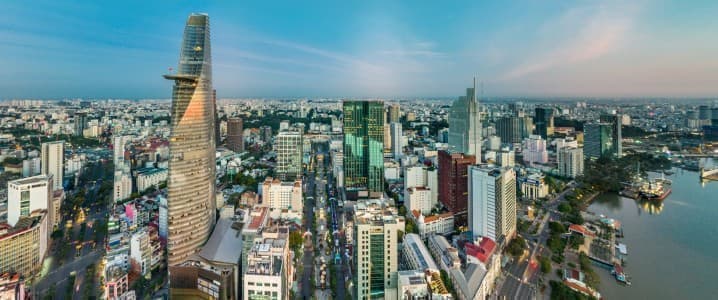Vietnam Police To Vet Energy Projects as National Security Concern Grows
Investors who wish to put their money in Vietnam’s energy, construction and telecommunications sectors will now require police approvals for their projects as the government moves to boost security and ensure “absolute leadership.” The security ministry will also supervise and inspect foreign aid projects in a bid to comprehensively appraise their potential impacts on security and social order. “In socio-economic development, security must be ensured, without sacrificing national interests for economic benefits,” said the security ministry’s website.
Vietnamese police already play a major role in the country’s legislation as well as growing interests in the economy. To Lam, Vietnam’s most powerful man, was head of the security ministry before he became the General Secretary of the Communist Party of Vietnam. The country’s army also oversees a wide array of businesses, including banks and telecom operator Viettel.
The proposal by the public security ministry is likely to increase compliance costs and the cost of doing business in the Southeast Asian country even as the ruling Communist Party looks to expand the powers of the security apparatus. U.S. giant chipmaker Intel, Honda and Samsung Electronics have set up shop in Vietnam in a bid to take advantage of low labor costs. However, they frequently complain about slow project approvals.
In recent years, Vietnam has faced an energy crisis, triggered by extreme weather including drought impacting hydropower, and rapidly increasing electricity demand from its expanding industrial sector. The resulting power cuts caused significant economic losses, especially for foreign manufacturers, and exposed the vulnerability of the nation’s power grid and its limited capacity. The government has since taken steps to address the crisis, but challenges remain in balancing energy supply with demand and investing in a robust, modern energy infrastructure.
Last year, Norway’s state-controlled energy giant Equinor ASA (NYSE:EQNR) abandoned plans to invest in Vietnam’s offshore wind sector, dealing a significant blow to the country’s green energy ambitions. This marked the first time Equinor has abandoned offshore wind development; in contrast, the company has previously exited more than a dozen fossil fuel projects to focus on renewables and low-carbon systems. In 2023, Danish offshore wind giant Ørsted A/S (OTCPK:DNNGY) also paused its multi-gigawatt offshore wind plans in Vietnam, again due to regulatory challenges.



Leave a Comment
Your email address will not be published. Required fields are marked *